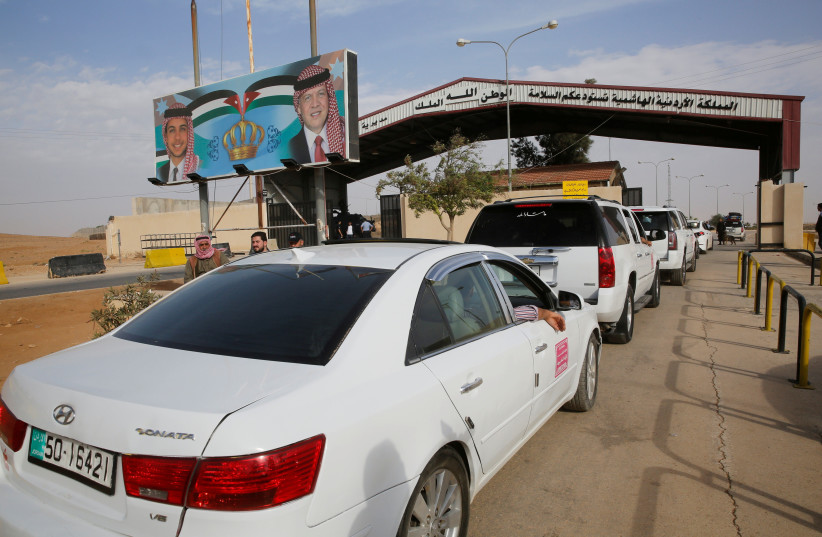King Abdullah II of Jordan said Iran and its proxies were filling a vacuum left by Russia in southern Syria, warning that this could lead to issues along Jordan’s borders, during an interview at the Hoover Institution at Stanford University.
When asked about Iran, the king stated, “We want everybody to be part of a new Middle East and to move forward, but we do have security challenges. We’re seeing border attacks on a regular basis and we know who’s behind that.”
Abdullah stressed that Russia’s presence in southern Syria was a “source of calm” and warned that Iran and its proxies were filling the vacuum left by Russia as it focuses on Ukraine. “Unfortunately we’re looking at maybe an escalation of problems on our borders,” he said.
Recent reports indicated that Russia was withdrawing its forces from Syria in order to reinforce its forces in Ukraine, but these reports have not been officially confirmed.

“Do the politics, the negotiations that are going on between Saudi Arabia, the Gulf countries, the United States, does that move Iran into a more positive light? I hope so. I’m not seeing it on the ground at the moment,” added the monard during the interview.
Earlier, Brig.-Gen. Ahmed Hashem Khalifat, the director of Jordan’s Border Security Directorate, complained that the Syrian Army, Hezbollah and Iran were cooperating with drug smugglers along the Syrian-Jordanian border, according to Al-Ghad newspaper.
Khalifat added that since the beginning of the year, more than 19 million Captagon amphetamine pills, half a million “chunks” of cannabis and five bags of other pills have been seized; a substantial increase compared to last year.
Jordanian forces are planning to use armed drones to deter drug smuggling and infiltrations along the northern and eastern borders of the country. Khalifat added that the northern border is one of the most dangerous for Jordan.
'Last month was difficult'
King Abdullah also addressed the Israeli-Palestinian conflict and tensions in Jerusalem this past month, stressing that Arab leaders in the region realize that “the last month was a difficult one.”
“We had Ramadan, Passover and Easter holidays, but can we afford to go through this again next year?” asked the king. “So I hope that the dust will settle in the next couple of weeks and then [the question is] how do we get Israelis and Palestinians to the table? Not because of politics but again because of dire socioeconomic challenges coming out of COVID and compounded now with Ukraine and Russia.
“What I see in the past several months is Arab leaders coming together and saying how can we chart a new vision for our region, and it’s not just the Arabian Peninsula,” he said. “How do we solve the Israeli-Palestinian issue? Because no matter what relations Arab countries have with Israel, if we don’t solve the Palestinian issue, it’s really two steps forward and two steps back.”
The king stressed that Jordan still believes in a two-state solution to the conflict, adding, “The only solution that allows Israel’s integration into the Middle East is when we solve the issues for the Palestinians.”
Abdullah gave the interview during an official visit to the United States, during which he also met with US President Joe Biden.
